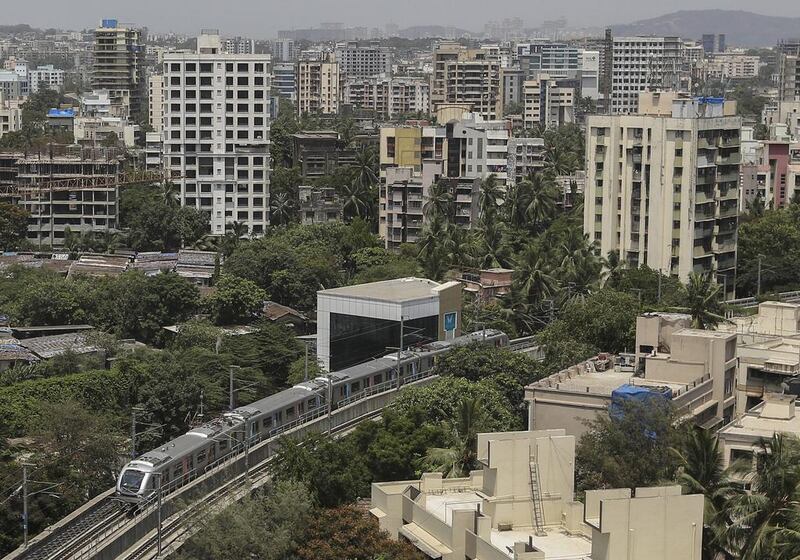The Indian billionaire Anil Ambani’s Mumbai metro, delayed since 2011 and heading for a dispute with the government over fares, began service on Sunday as thousands crowded the station to witness Hindu priests offer blessings.
Reliance Infrastructure’s unit Mumbai Metro One will charge a promotional 10 rupees (62 fils) for a one-way ticket for the first 30 days, and later increase it to as much as 40 rupees, according to its website. The regional government wants it to charge between 9 and 13 rupees in accordance with a contract it signed, Business Standard reported yesterday citing the Maharashtra chief minister Prithviraj Chavan.
The dispute highlights India’s problem as state control on prices, including electricity and gas, hinders investments in infrastructure and hobbles the US$1.8 trillion economy, according to Standard & Poor’s Indian unit. The newly-elected prime minister Narendra Modi has promised bullet trains and reduced dependence on cars as he pushes for more investment in public transport.
“Disputes over pricing and tariffs deter investments, and that should be avoided when so much money is required for infrastructure,” Dharmakirti Joshi, the chief economist at Crisil, S& P’s local unit, said by phone from Mumbai. “The infrastructure itself is always playing catch-up, and we’re building today what should’ve been built yesterday.”
Mr Chavan told reporters in Mumbai the dispute would be settled according to clauses in the contract with Reliance Infrastructure.
“This is not the time to ask such questions,” Mr Ambani told a reporter at the inauguration ceremony in Mumbai, when asked for comments on the dispute over fares.
India now has about 225 kilometres of metro rail lines, almost all accounted for by New Delhi’s 190km. That compares with about 1,700km in China and New York City’s 1,062km of passenger track.
India needs to increase its total more than 10 times to at least 2,500km by 2031 to accommodate the expected surge in intracity commuters, reduce pollution and cut road fatalities, according to Venugopal Garre, Manish Agarwal and Saurabh Mishra, Barclays Bank analysts in Mumbai.
Infrastructure in India has failed to keep up with the demands of a population that is the second biggest in the world. The former prime minister Manmohan Singh a decade ago vowed to make Mumbai another Shanghai even as creaky infrastructure, real estate that is among the most expensive in the world and urban squalor remain hallmarks of India’s financial centre.
The Mumbai metro, whose construction started in 2007, connects the north-western suburb of Versova to Ghatkopar in the east and was originally scheduled to commence service at the end of 2011. Reliance Infrastructure owns a 69 per cent stake in the Mumbai Metro One venture, which is building the metro and will operate it, while the Mumbai Metropolitan Region Development Authority (MMRDA) holds 26 per cent, according to Mumbai Metro One’s website.
Trains will run on an elevated line with 12 stations and the system is designed to reduce a 90-minute commute across the breadth of the city to 20 minutes, according to the website.
The Mumbai metropolitan region needs $60 billion of investment in public transportation over the next 20 years and the current plan falls short, according to estimates by Shirish Sankhe, the Mumbai-based director at McKinsey. In a 2010 study, the consultant said India must spend $2.2tn by 2030 on urban transportation, housing and office space to boost infrastructure.
A monorail opened in Mumbai in February. On completion of its second phase, it may ferry at least 150,000 passengers a day — a fraction of the city’s commuter population over a 20km stretch, according to the MMRDA website.
business@thenational.ae
Follow us on Twitter @Ind_Insights





